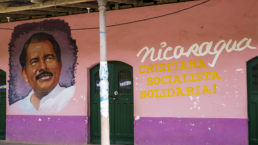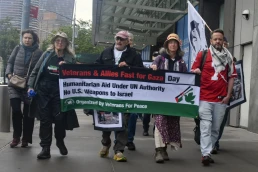By John Perry, FAIR
The Guardian (6/2/22) called it a “sweeping purge of civil society,” while for the New York Times (2/14/22), Nicaragua is “inching toward dictatorship.” According to the Washington Post‘s Spanish edition (5/19/22), the country is already “a dictatorship laid bare.” In a call echoed by the BBC (5/5/22), the UN human rights commissioner urged Nicaragua to stop its “damaging crackdown on civil society.”
What can possibly have provoked such widespread criticism? It turns out that the Nicaraguan National Assembly’s “sweeping purge” was the withdrawal of the tax-free legal status of a small proportion of the country’s nonprofit organizations: just 440 over a period of four years. In more than half the cases, these non-governmental organizations (NGOs) have simply ceased to function or no longer exist. In other cases, they have failed (or refused) to comply with legal requirements, such as producing annual accounts or declaring the sources of their funding. Modest legal steps that would go unnoticed in most countries are—in Nicaragua’s case—clear evidence that it is “inching toward dictatorship.”

None of the media reports asked basic questions, such as what these nonprofits have done that led to the government taking this action, whether other countries follow similar practices, or what international requirements about the regulation of nonprofits Nicaragua is required to comply with. There is a much bigger story here that corporate media ignore. Let’s fill in some of the gaps.
Recent Posts
These Veterans Starved Themselves To Protest The War In Gaza
July 8, 2025
Take Action Now As food in Gaza becomes increasingly scarce, activists are pushing their bodies to the limit in solidarity.By Emmet Fraizer, The…
ICE Agents Are Terrorizing Los Angeles With Brutal Tactics
July 8, 2025
Take Action Now ICE agents have established a pattern of brutal use of force in immigration raids.By Jonah Valdez, The InterceptSince June 6,…
Talk World Radio: India Walton On Zohran Mamdani And Freezing Out ICE
July 7, 2025
Take Action Now India Walton, former Democrat nominee for mayor of Buffalo, NY, discusses Zohran Mamdani and the race for NYC mayor and how to deal…
How Climate Change Is Worsening Flooding And Heavy Rainfall
July 7, 2025
Take Action Now The latest science on the link between climate change and natural disasters — and how they may be playing out where you live.By…




